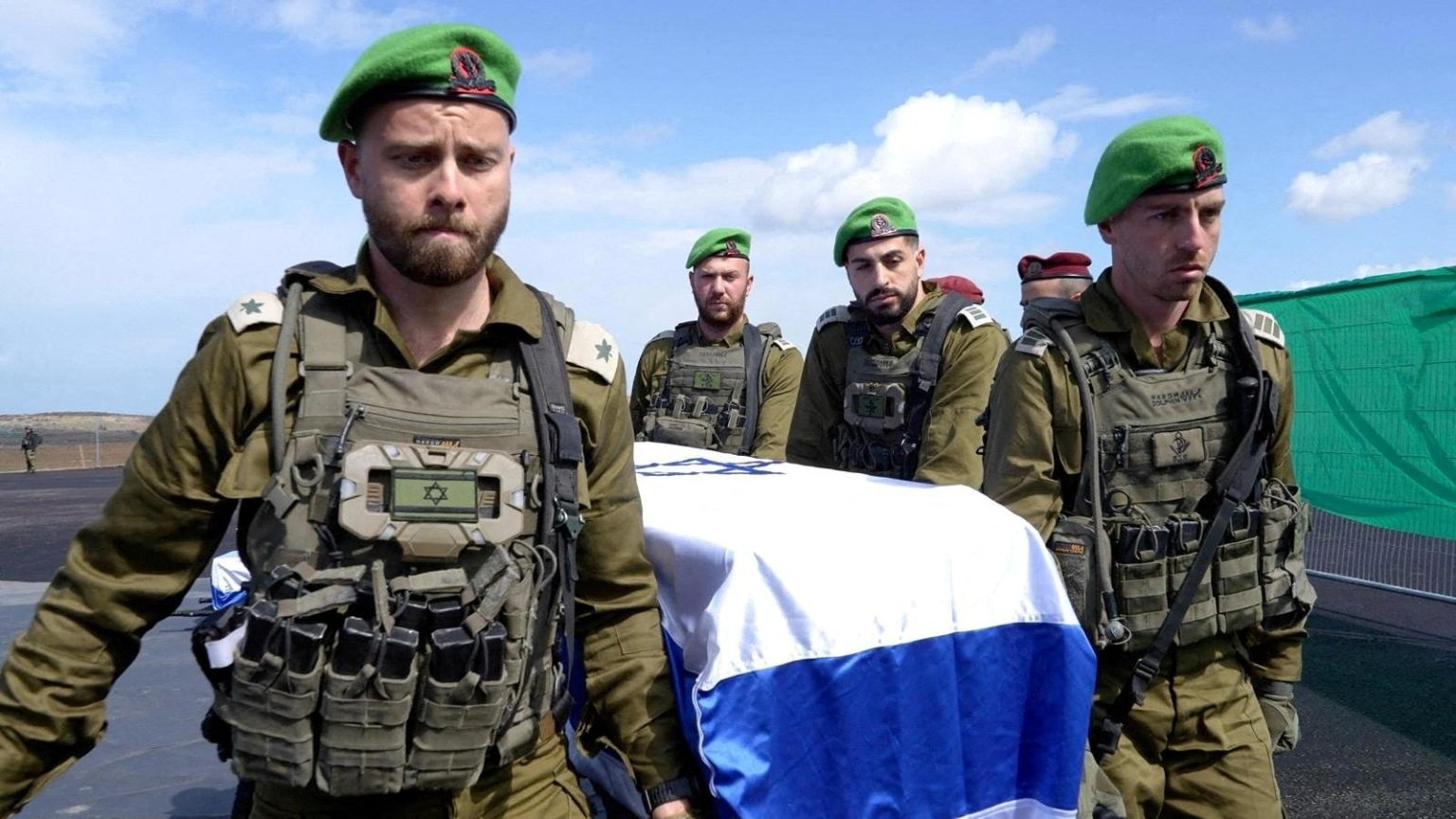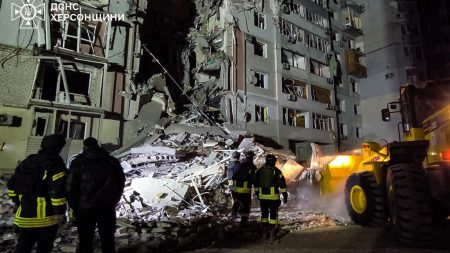A Grim Discovery: Israel’s Outrage Over Hamas’ Alleged Violation of Ceasefire Agreement
In a devastating turn of events, Israeli Prime Minister Benjamin Netanyahu has vowed swift and severe retaliation after Israel accused Hamas of violating a ceasefire agreement by returning the body of a Gazan woman instead of one of the Israeli hostages. The incident occurred during a handover ceremony in which four coffins were transferred from Gaza to Israel. Among the bodies returned were those of Oded Lifschitz and Shiri Bibas’ two children, Kfir and Ariel. However, the fourth body was identified as belonging to a Gazan woman, not Shiri Bibas, sparking outrage and accusations of cruelty from Israeli officials. Netanyahu called the act "unspeakably cynical" and vowed to bring Shiri Bibas and all other hostages home, both living and dead, while ensuring Hamas faces the consequences of this alleged violation. Hamas has yet to respond to the claims.
The Handover Ceremony and Its Aftermath
The handover took place in Khan Younis, a city in southern Gaza, where Red Cross officials took custody of four black coffins. A Red Cross official and a Hamas commander signed documents during the ceremony, which was marked by a banner reading, "The Return of War = The Return of Your Prisoners in Coffins." The coffins were then brought into Israel, where they were taken to the National Center of Forensic Medicine in Tel Aviv’s Abu Kabir neighborhood for identification. Israeli officials conducted forensic analysis, which revealed the shocking discrepancy. The remains of Lifschitz and the two children were confirmed, but the fourth body did not match Shiri Bibas or any other known hostage. This revelation has deepened the anger and grief felt by the families of the hostages and the Israeli public.
The Human Cost: The Bibas Family’s Tragic Ordeal
The Bibas family has been at the center of this heartbreaking saga since October 7, 2023, when Hamas militants launched a deadly attack on Israel, resulting in the kidnapping of 251 hostages, including Shiri Bibas, her husband Yarden, and their two young children, Kfir and Ariel. Kfir, just 8.5 months old at the time of the kidnapping, was the youngest hostage taken. Ariel, aged 4, and Shiri were also seized during the attack. Tragically, forensic analysis confirmed that both children were killed in captivity in November 2023, just weeks after their abduction. Yarden Bibas, the father, was later freed earlier this month, but the fate of Shiri remains uncertain. The discovery that her body was not among those returned has left the family and the nation in shock, with Netanyahu describing Hamas’ actions as "monstrous cruelty."
The Broader Context: A Cycle of Violence and Suffering
The October 7 attack marked one of the deadliest days in Israel’s history, with Hamas’ violent incursion leading to widespread destruction and loss of life. The subsequent war in Gaza has resulted in over 48,000 Palestinian casualties, according to estimates. The conflict has created an unimaginable humanitarian crisis, with families on both sides enduring unbearable suffering. The handover of bodies and hostages has brought some measure of closure to the families of Oded Lifschitz and the Bibas children, but the ongoing uncertainty surrounding Shiri Bibas’ fate has reignited calls for justice and accountability. Netanyahu’s promise of revenge highlights the volatile nature of the conflict, where each incident has the potential to escalate tensions further.
What’s Next: Future Exchanges and the Path Forward
Despite the current tensions, there are hopes that additional hostages may soon be reunited with their families. Six more hostages, identified as Eliya Cohen, Tal Shoham, Omer Shem Tov, Omer Wenkrat, Hisham Al-Sayed, and Avera Mengistu, are expected to be released on Saturday. Additionally, four more bodies are set to be returned to Israel next week. While these developments offer some glimmer of hope, the Bibas family’s ordeal serves as a stark reminder of the human cost of this conflict. The ceasefire agreement, while fragile, provides a temporary reprieve, but lasting peace remains elusive. The international community continues to call for restraint and dialogue, but the emotional and political stakes remain high.
A Plea for Peace Amidst the Chaos
The conflict between Israel and Hamas has created a cycle of violence that seems impossible to break. Each side accuses the other of atrocities, and the innocent are caught in the crossfire. The Bibas family’s story is just one of many heartbreaking tales emerging from this conflict. As the world watches, the call for peace grows louder, but the path forward remains uncertain. The Red Cross and other humanitarian organizations are doing their part to facilitate the return of hostages and the deceased, but their efforts are often overshadowed by the political and military rhetoric. For now, the families of the hostages and the victims can only hold on to hope—hope for the safe return of their loved ones, hope for justice, and hope for a future where such tragedies are a thing of the past.















